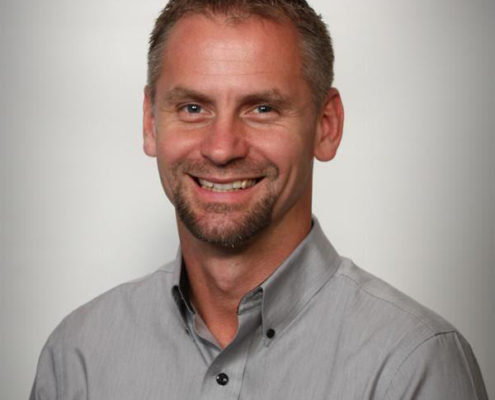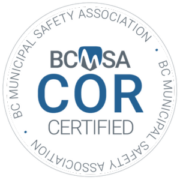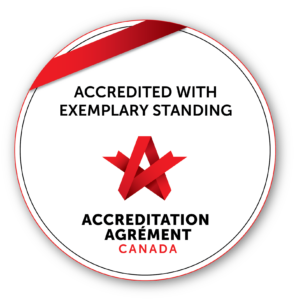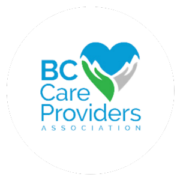Bas Kervel
 Bas Kervel is a pioneer in western Canada in researching and implementing a super-green system of cleaning in a hospital environment. His awareness of the vulnerability of the elderly population to bacterial and viral infection gave him the motivation to improve the level of cleanliness in our large residential care facilities. “The equation is simple”, says Bas, “the less bacteria, viruses, mold, fungi, yeasts and other organisms there are, the less chance of an outbreak.”
Bas Kervel is a pioneer in western Canada in researching and implementing a super-green system of cleaning in a hospital environment. His awareness of the vulnerability of the elderly population to bacterial and viral infection gave him the motivation to improve the level of cleanliness in our large residential care facilities. “The equation is simple”, says Bas, “the less bacteria, viruses, mold, fungi, yeasts and other organisms there are, the less chance of an outbreak.”
Patient safety has greatly increased since the implementation of the aqueous-ozone cleaning system in Menno Home and Menno Hospital. The primary area where patient safety has increased is in the thoroughness of cleaning throughout these facilities.
When Bas brought in the new system, the housekeeping staff found that their productivity increased. We look forward to a survey that will document the percentage of increase that has come into effect with this transition. We anticipate that there will be up to a 50% increase in staff productivity. This is due, in part, to the decreased time required to mix and dilute chemicals, to clean machinery and to rinse product off of surfaces after it has been applied. The rinsing time, alone, would be enough of a productivity increase for Bas. There is no question, now, if the organisms have been exchanged for chemicals. Since there are no chemicals, there is no fear of leaving a harsh, toxic chemical residue on surfaces.
As a result, our staff have the time to clean surfaces that are key to managing the spread of bacteria and viruses. They are thoroughly cleaning the elevators, including the bar grips and elevator buttons. There is no risk that harsh or toxic chemicals will damage the elevator in any way. They are also able to focus on crash bars and other surfaces where multiple people are touching and exchanging bacteria and viruses.
This has greatly improved our rate of infection in Menno Home and Menno Hospital. Since we are in our first year of the new cleaning system, we don’t have the year-over-year figures, but notice a marked improvement in our control of outbreak as well.
Residents who live primarily indoors with limited mobility are governed by the indoor air quality in which they live. When chemicals are used in an indoor environment, there is a greater “hit” to the quality of the air. Our residents had no choice but to breathe in the chemicals that were being used to clean their homes. With the new cleaning system, there are no vapours and as a result, the quality of air within our buildings has improved for our residents.
And finally, the amount of time that it takes to clean an area has been drastically reduced as the aqueous-ozone cleaning system has a kill-time of only 2 seconds for the major bacterial and viral organisms. This reduces the amount of time that floor surfaces are wet and greatly reduces the possibility of a slip or fall by residents, families and staff.
Housekeeping staff safety and well-being has also increased. With chemicals, there is always a chance of accidental spills or incorrect dilution. Although Bas recently upgraded our chemical dispensers in order to reduce the possibility of an error, there is still a possibility of incorrect dilution. Although none of our staff have made a short-term or long-term disability claim based on chemical usage, Bas is concerned that it will never be a possibility for our housekeeping team. He is aware of increasing allergic reactions as well as sensitivity to hospital-grade chemicals. With this in mind, he continues to press on toward the possibility that our facilities can be completely, 100% chemical-free in our cleaning.
Leanne Tanner, Co-ordinator of Housekeeping says, “The main thing about our staff is that they are very happy using this system. They are happy that there is no smell, happy that there is no risk and happy that they are the front-line of making a safer place for the residents that they love. When my staff are happy… I am happy, too.
It is important to note that Bas continues to wait for the final approval from the Fraser Health Authority to use this aqueous-ozone cleaning system on all the surfaces of resident rooms. Until the DIN number has been assigned to the product, we continue to only clean the floors of resident rooms with this no-chemical cleaning system. The remaining surfaces are cleaned with the required hospital-grade chemicals. When the DIN number is approved, Bas will be delighted to remove these final chemicals from our cleaning repertoire and be the first residential care facilities in BC to be entirely chemical-free.




